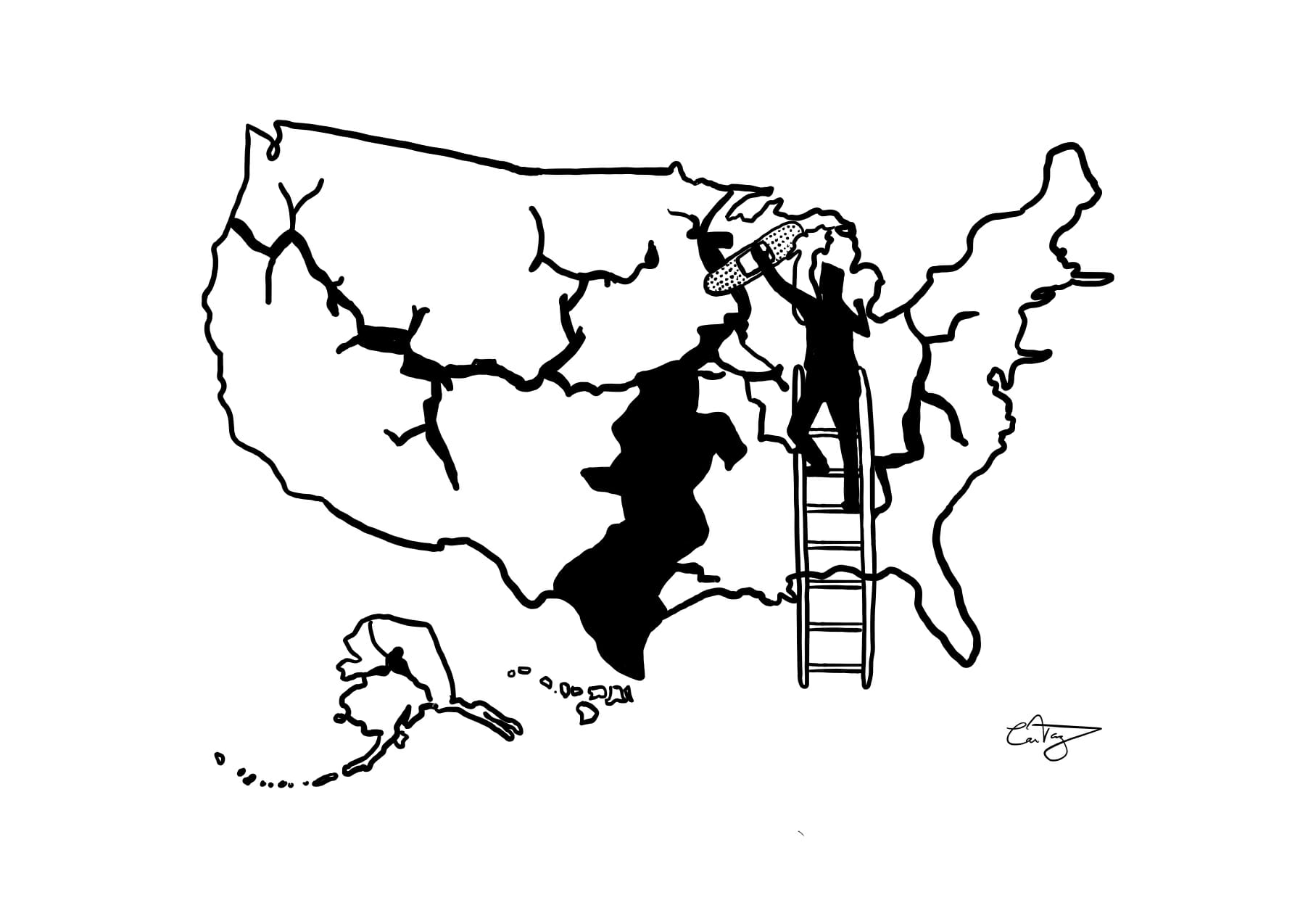(Carolyn Vaziri’22/Staff)
In President Joe Biden’s inaugural speech, he mentioned the word “unity” nine times. It was the cornerstone of his address.
But what does “unity” mean in a democratic society?
Does it mean that we all suddenly agree on the same issues and priorities? No. It rather means that we agree on adhering to democratic norms. In other words, we agree to play by the rules of the game.
It means we are unified behind our institutions and have trust in their integrity. As important as it is that we are unified on these fundamental principles, it is critically important that we remain civil in our disagreements.
In a democratic system, unity can not be completely achieved. Only a tyrannical regime can impose a unified set of beliefs on its citizenry. Democratic government, in fact, is stronger because we welcome opposing voices and embrace civil discourse.
But this brings me to those in public office who are consciously seeking to raise the temperature by launching ad hominem attacks and promoting baseless conspiracy theories.
Before hastily calling for unity, our body politic must heal.
It can only heal when we hold accountable those who tried to destroy it. History is instructive in this regard.
This is not the first time in our nation’s history when our unity was threatened by incivility and insurrection.
After the American Civil War, President Andrew Johnson abandoned President Lincoln’s plans for Reconstruction. He offered appeasement to traitorous White southerners and emboldened their supremacist ideologies. Following a series of presidential pardons, members of the Confederacy – including the former vice president, Alexander Stephens – were welcomed back into Congress.
As a result, the gains won in the Civil War for Black Americans were largely left on the battlefield.
Nearly a century later, our nation faced another reckoning. Senator Joseph McCarthy led a smear campaign against suspected communists, ruining the careers, reputations, and livelihoods of countless innocent Americans. What was the Senate’s response this time? They censured him. And our nation healed.
In the present day, we can’t just accept these White supremacists back into the conversation as if no crime was committed.
We must not forget the violent consequences of their hateful, divisive rhetoric and “move on.”
Their actions were – and never will be – civil.
Theologist Reinhard Nieburh writes, “Man’s capacity for justice makes democracy possible, but man’s inclination to injustice makes democracy necessary.”
In seeking unity, we must not become desensitized to cracks in our democracy. We must allow ourselves this time to heal.








